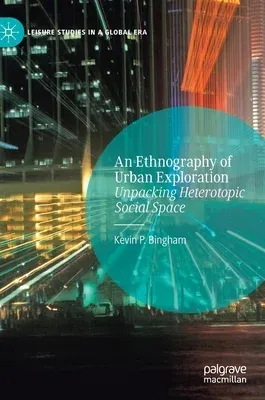Kevin P Bingham
(Author)An Ethnography of Urban Exploration: Unpacking Heterotopic Social Space (2020)Hardcover - 2020, 2 October 2020

Qty
1
Turbo
Ships in 2 - 3 days
In Stock
Free Delivery
Cash on Delivery
15 Days
Free Returns
Secure Checkout

Part of Series
Leisure Studies in a Global Era
Print Length
280 pages
Language
English
Publisher
Palgrave MacMillan
Date Published
2 Oct 2020
ISBN-10
3030562506
ISBN-13
9783030562502
Description
Product Details
Author:
Book Edition:
2020
Book Format:
Hardcover
Country of Origin:
NL
Date Published:
2 October 2020
Dimensions:
21.01 x
14.81 x
1.75 cm
Genre:
Urban
ISBN-10:
3030562506
ISBN-13:
9783030562502
Language:
English
Location:
Cham
Pages:
280
Publisher:
Weight:
503.49 gm